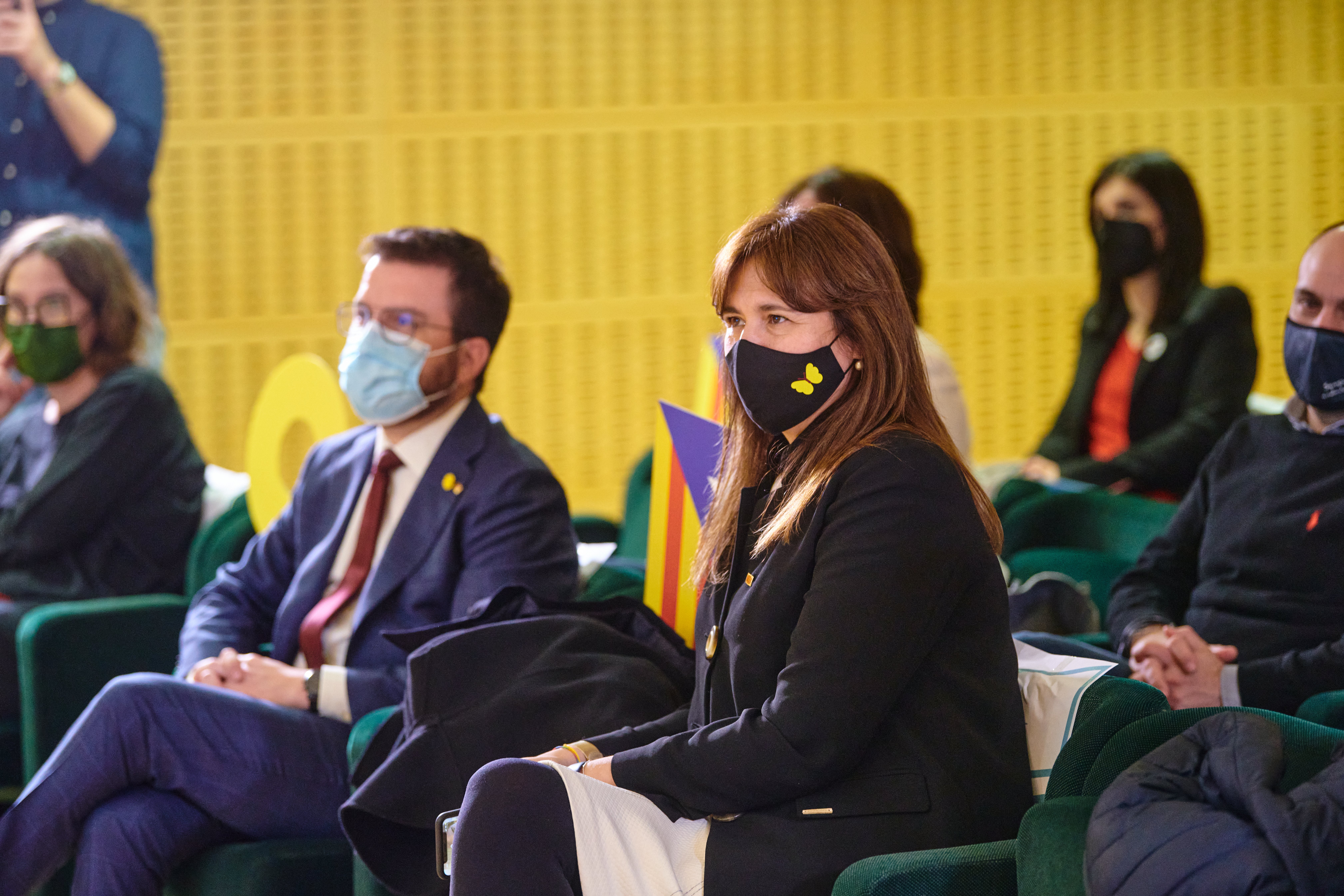At the moment there is no guarantee of success, but despite the doubts, Pere Aragonès, of the Catalan Republic Left (ERC) will have to face his first investiture debate and vote on Friday. The speaker of Catalonia's Parliament has nominated him as candidate for the presidency of the new Catalan government, after having heard the views of all parliamentary groups, and thus ruling out the alternative, of proposing Catalan Socialist nominee Salvador Illa. "The candidate most likely to be invested as president is Pere Aragonès," she announced.
Time is nearly up for the negotiations between the two main key pro-independence parties ERC and Junts (Together for Catalonia) and, if agreement is reached, it will be right at the last moment. The teams designated by both political groups have until Friday to finish fitting the pieces together to make the investiture viable. Junts general secretary Jordi Sànchez made it clear on Tuesday that an accord was "not yet possible" and would need "days or weeks" to be reached, but ERC has remained upbeat about the possibility of achieving the presidenital investiture in the first round.
At half past seven on Friday evening the first plenary vote will be held. For Aragonés to become president, he will need at least 68 votes in favour. Right now he has only 33 assured, those of ERC, although he aspires to the 74 which is the total number of seats held by the three pro-independence parties. The scenarios of support from both Junts and, on the other side, the left-wing Popular Unity (CUP), are still open.
Some CUP grass-roots reject ERC deal
The positioning of the 9 deputies for the anti-capitalist party will be known on Thursday afternoon. However, this Wednesday evening, CUP support for the investiture of Aragonès was placed in doubt as grass-roots members of one of the major CUP constituent groups, Endavant, rejected the pre-accord negotiated reached with ERC. However, party members are still to vote on a question that leaves open the possibility that despite rejecting the agreement with ERC, the investiture could be facilitated, either through an abstention or a vote in favour.
CUP sources said earlier on Wednesday that "nothing is clear or guaranteed" and predicted that debate would continue well into the night.
Dialogue with Puigdemont
In the case of Junts, the issue of support for Friday's vote is even more distant. Unlike the case with the CUP, Aragonès's party has not been able to reach agreement on any document of accords for the future government with Junts, who have 32 deputies, votes that are essential for ERC.
The ERC negotiating team confirms that as well as the contact between the delegations involved in the talks, there is direct dialogue with Junts leader Carles Puigdemont, although they rule out an urgent journey to meet him in his Belgian exile. The role that the former president is to play in the next legislature, as leader of the exile body Council for the Republic, is one of the points under discussion.
The role of the Spanish king
If in Friday's first ballot the candidate fails to get an absolute majority of votes (68), he will face a second round, whose timing has yet to be decided - it could be Sunday or Tuesday. In this vote, Aragonès will only need more votes in favour than against. Should he fail, a two-month window would open, after which, if a successful investiture had not been achieved, elections would have to be repeated.
If Aragonès succeeds in being invested as new Catalan president, the speaker Borràs will, by law, have to communicate this to Spain's head of state, king Felipe VI, so that the corresponding publication in the official gazette can take place. In the following five days, the new president will then have to be sworn in.
In the main image, the speaker of the Catalan Parliament, Laura Borràs and the candidate for the Catalan presidency, Pere Aragonès. / ACN

